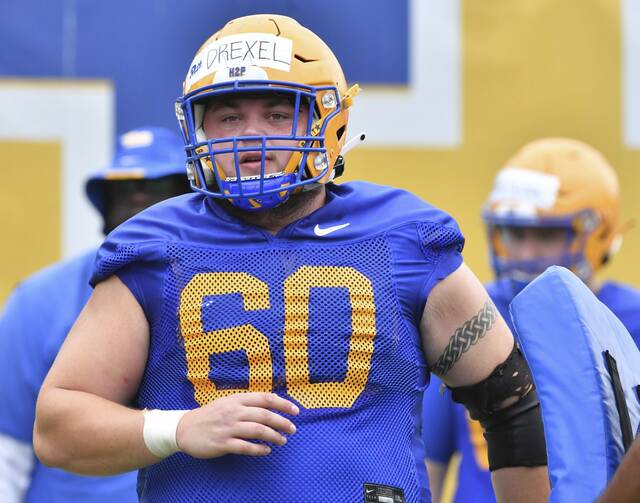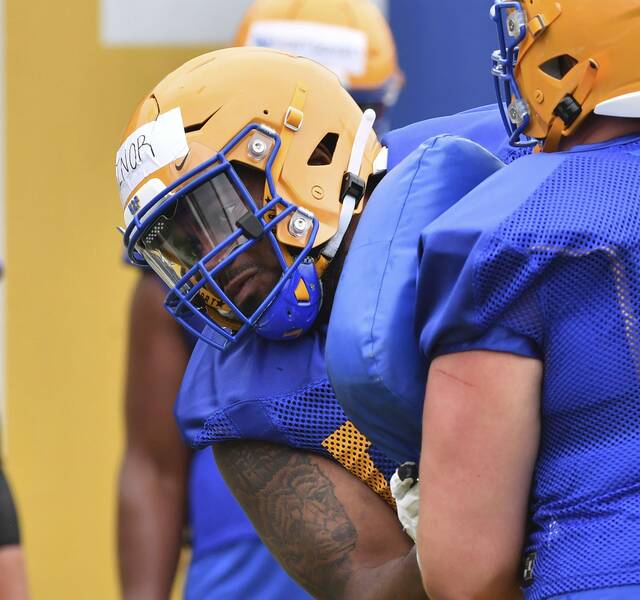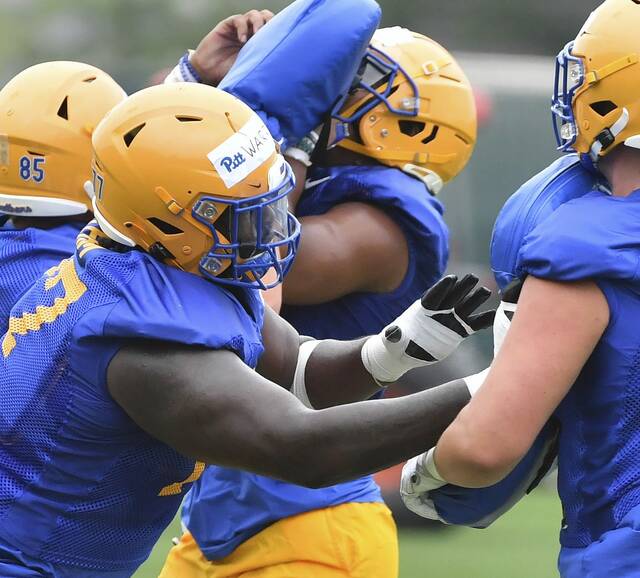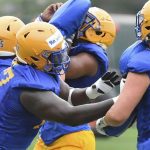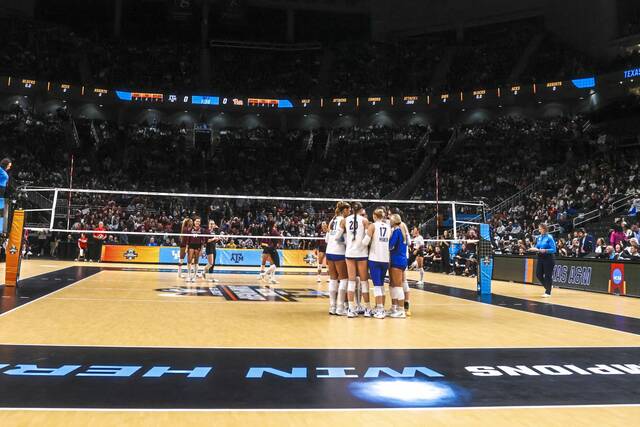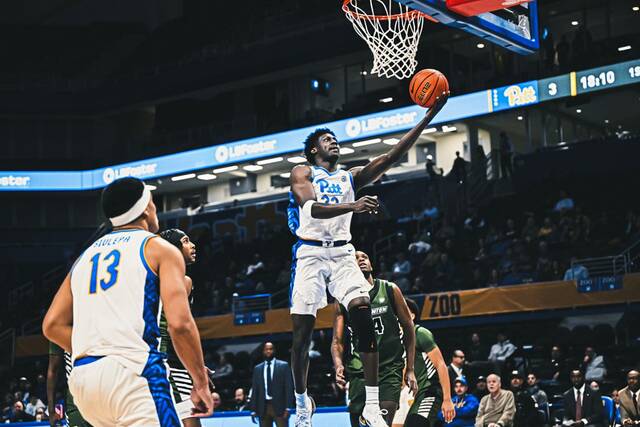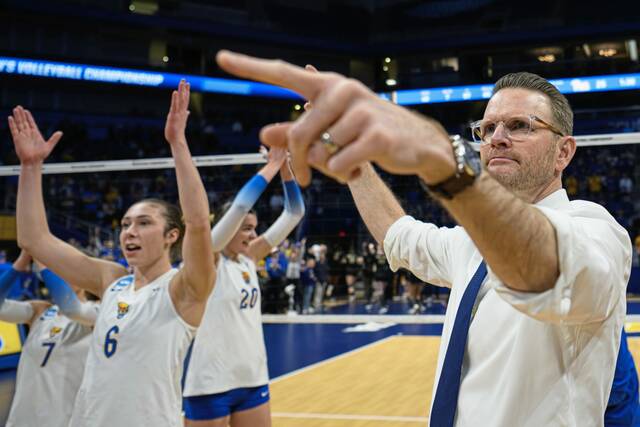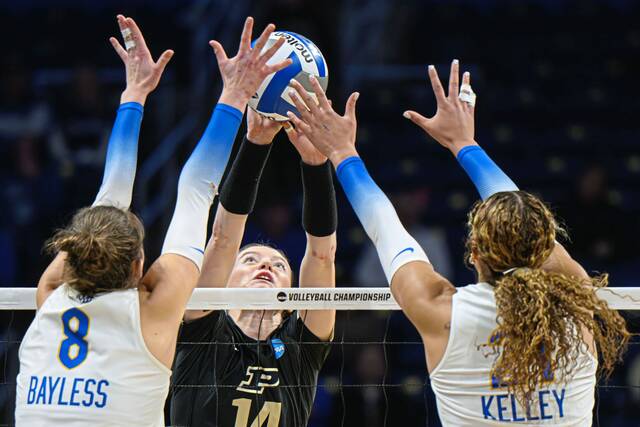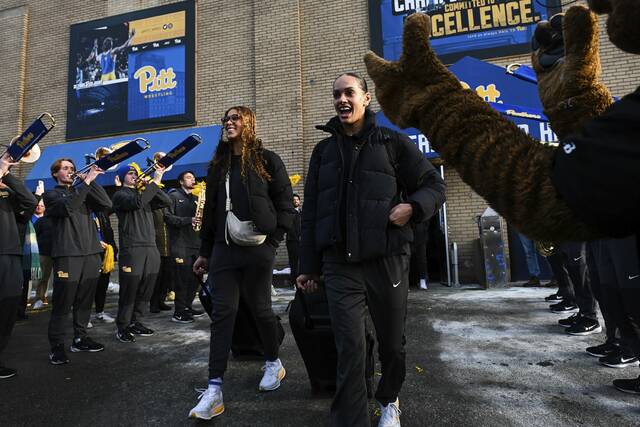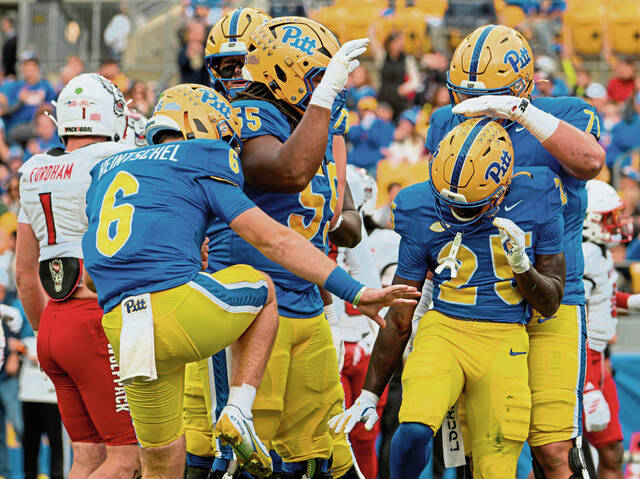One at a time, five large men walked into Dave Borbely’s office late last season, seeking his counsel and wisdom.
Each player — Carter Warren, Marcus Minor, Owen Drexel, Jake Kradel and Gabe Houy — had the same question:
“Should I come back?”
Pitt’s offensive line coach, who at the time was concluding his fourth season on the staff, did not pressure any of them to stay for the bonus covid year allowed by the NCAA. But he thought it was a good idea.
“The next question out of all of their mouths was, ‘Why?’ ” Borbely said.
The answer was a simple one: Remaining in college one more season — getting stronger and more savvy — could only help make them more marketable for the NFL in 2023.
“All you have to do is look and see what Kenny Pickett did for himself,” Borbely said. “He was a draftable guy (in 2021) and decided to come back.”
Pickett won a championship, challenged for the Heisman Trophy and was a first-round draft choice.
“If that helps you come back, then beautiful,” Borbely said. “But I didn’t put any pressure on anybody. Some of them can’t keep a secret, but I knew they were all going to come back.”
That wasn’t the end of it. Borbely laid out conditions for their return.
“As I told them, if you come back, competition is wide open,” he said. “And it is. The guys in this second group, they’re really pressing (the starters). They’re pushing some of these starters to up their game.
“One thing I told them, we can’t be the same players we were last year because it won’t be good enough. We can’t have the same players we had last year. We have to improve. They’re working to do that and that second group is helping that because they’re pushing the envelope for sure.”
It may be difficult to unseat any of the quintet — although coach Pat Narduzzi has referenced the battle at right guard between Kradel and Blake Zubovic — but it’s a tightly woven group that gets along well with each other and is accustomed to playing on the same line together. All five were starters last year.
Plus, they are not kids anymore. All five have passed their 23rd birthday and, with the exception of Kradel, have been out of high school since 2017.
“When you have fifth-year, sixth-year seniors, it’s tremendous,” Narduzzi said.
Narduzzi notes that freshmen want to play immediately, but he asks them, “Are you going to be better at 18 or when you’re 22 or 23?”
“We’re all smarter when we’re 23. So, they are definitely better football players. Having maturity there or anywhere on your football team is certainly a thing you want to have.”
The group of backup linemen who could have been starters this season under different circumstances includes Matt Goncalves, Ohio State transfer Ryan Jacoby, highly touted freshman Ryan Baer, center Terrence Moore, Zubovic, Branson Taylor and Jason Collier Jr.
Goncalves said waiting his turn doesn’t bother him.
“I would have done the same thing,” he said. “We’re brothers. I love every single one of those guys.”
Borbely is doing what any smart coach might do: He’s keeping everyone engaged.
“I’m rolling a lot of guys in with the first group,” he said. “I have a lot of confidence in that (second) group, and, certainly, by next year I’ll have even more because many of them will have played and been in the system for another year.
“That group is doing a fantastic job. If it wasn’t for covid, those guys would be the starters.”
Good depth and real hope for the future are trademarks of solid recruiting and a healthy program, but it’s what happens with those five seniors in 12 (or more) games this season that really matters.
Can they keep quarterbacks upright long enough to maintain a productive passing game?
Will they give running backs time to find a hole and make a cut to daylight?
No one knows how the season will evolve, but Borbely likes what he calls a “great understanding” among his players.
“They understand the tempo I want them to drill at,” he said. “When we go against the defense, we haven’t had a lot of mental errors, which we shouldn’t.”
Perhaps the best example of how experience can help an offensive lineman is how well Houy understands the offense.
“He might understand it better than I do,” Borbely said. “He’s really smart. A year ago, he never made the same mistake twice. That’s been his history. The older he’s gotten, the sharper he’s gotten.”


